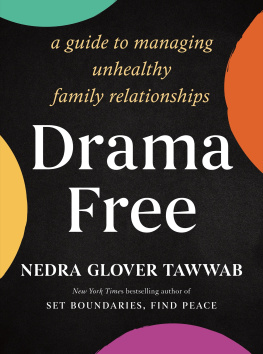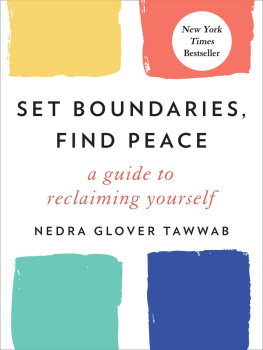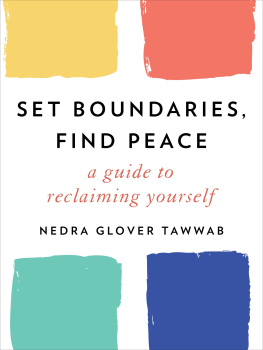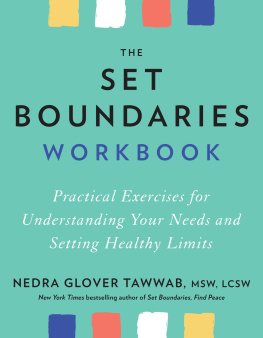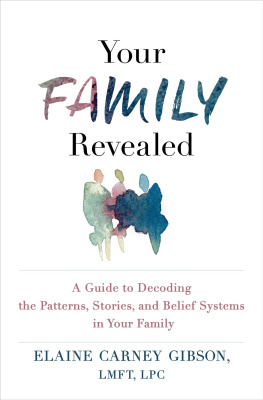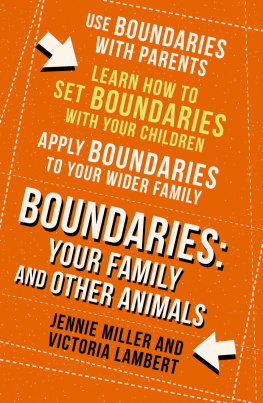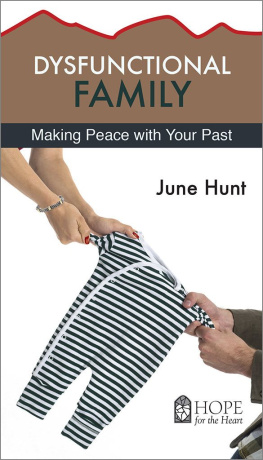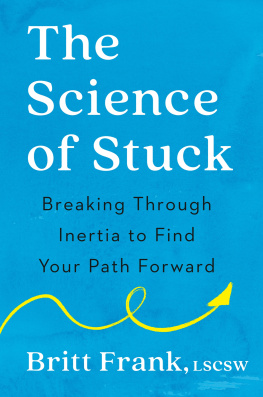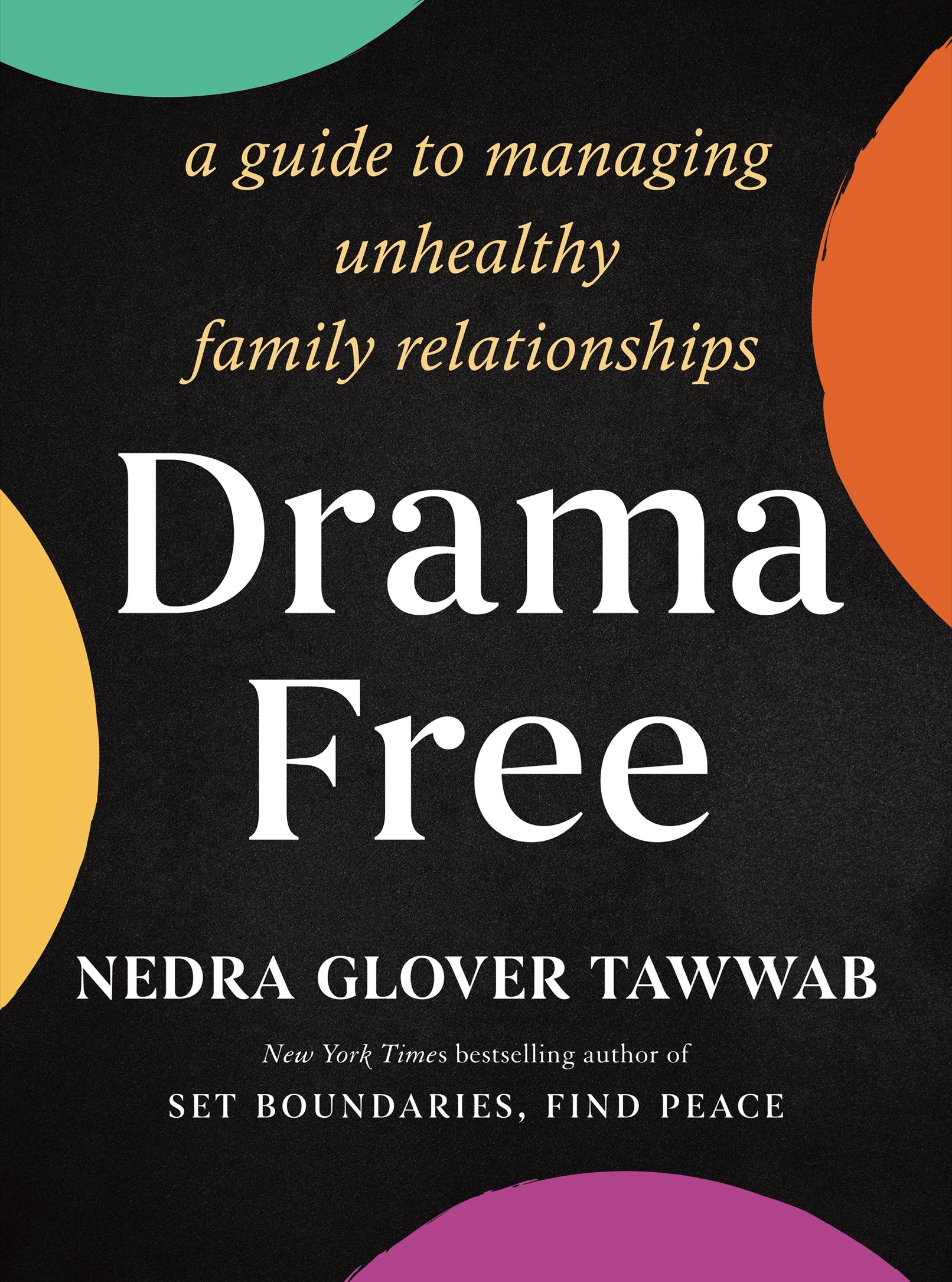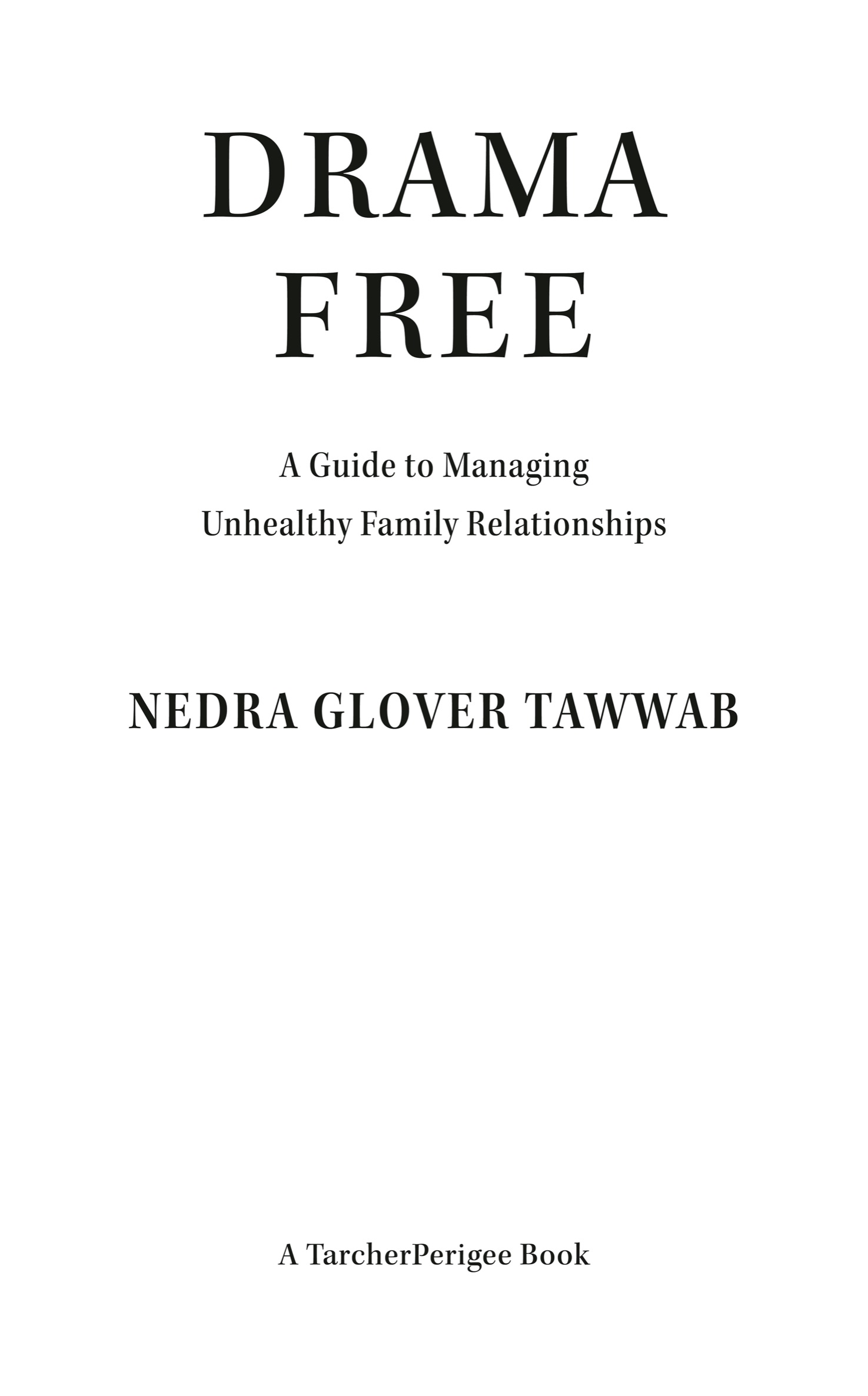Advance Praise for Drama Free
Without a fresh perspective and the belief that we can break the cycle, we can get stuck in family patterns rather than living as our whole selves. With compassion and clarity, Nedra Tawwab offers a much-needed guide to understanding our upbringingand becoming an agent for change in our own lives.
Lori Gottlieb, New York Times bestselling author of Maybe You Should Talk to Someone and cohost of the Dear Therapists podcast
In Drama Free, therapist Nedra Tawwab gives us the tools to understand family relationships and manage them in a healthier waywhile staying true to who we are and what we need. This book offers a powerful path forward.
Charlamagne Tha God, New York Times bestselling author and cohost of The Breakfast Club
Many people go to therapy to work through the issues in their heads, overlooking that their biggest challenges often lie in their family relationships. In this book, therapist Nedra Tawwab offers practical wisdom to help you handle problems with parents, siblings, children, and yes, even in-laws. In a time when mental health is finally getting the attention it deserves, this is a vital guide to building healthier families.
Adam Grant, #1 New York Times bestselling author of Think Again and host of the TED podcast Re:Thinking
Drama Free is an engaging and relatable guide to understanding whats really going on within our families, offering practical steps for creating healthy changes as needed.
Myleik Teele, founder of CURLBOX
The family dynamics we grew up with can feel like an immutable fact of lifea set of patterns and rules we carry with us, for better or worse. In this empowering book, Nedra Tawwab upends this assumption, unpacking these complex relationships and offering tools for positive change.
Judson Brewer, MD, PhD, New York Times bestselling author of Unwinding Anxiety
ALSO BY NEDRA GLOVER TAWWAB
Set Boundaries, Find Peace
The Set Boundaries Workbook
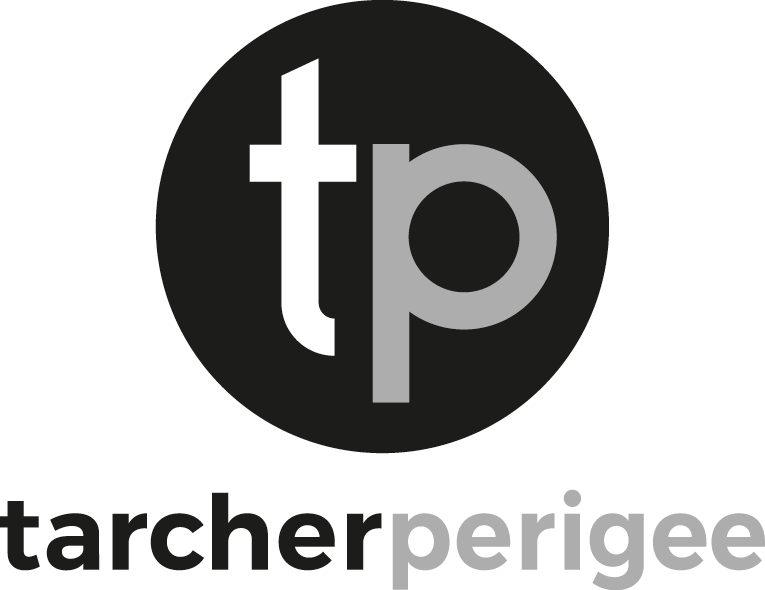
an imprint of Penguin Random House LLC
penguinrandomhouse.com
Copyright 2023 by Nedra Glover Tawwab
Penguin Random House supports copyright. Copyright fuels creativity, encourages diverse voices, promotes free speech, and creates a vibrant culture. Thank you for buying an authorized edition of this book and for complying with copyright laws by not reproducing, scanning, or distributing any part of it in any form without permission. You are supporting writers and allowing Penguin Random House to continue to publish books for every reader.
TarcherPerigee with tp colophon is a registered trademark of Penguin Random House LLC.
Hardcover ISBN 9780593539279
Ebook ISBN 9780593539286
Jacket design: Jess Morphew
Jacket image: (circles) M.Dia / Shutterstock
Adapted for ebook by Kelly Brennan
Neither the publisher nor the author is engaged in rendering professional advice or services to the individual reader. The ideas, procedures, and suggestions contained in this book are not intended as a substitute for consulting with your mental health professional. All matters regarding your mental health require professional supervision. Neither the author nor the publisher shall be liable or responsible for any loss or damage allegedly arising from any information or suggestion in this book.
pid_prh_6.0_142549203_c0_r0
For us, people who need to learn to manage or leave unhealthy family relationshipswe are the answer, not the people we cant control
Contents
Introduction
Among the most significant contributors to your mental health, relationships can cause you pain, or they can heal you. Positively or negatively, relationships have an impact on your mental and emotional well-being. Psychologists have long supported the finding that healthy relationships can prolong your life, while unhealthy ones can influence health issues like cancer, heart disease, depression, anxiety, and addiction. So, we must take the health of our relationships seriously and strengthen connections where possible. While this applies to all types of relationships, no type of relationship is as formative as those we have with our family of origin.
My first book, Set Boundaries, Find Peace: A Guide to Reclaiming Yourself, helped people understand the importance of boundaries in relationships. Healthy boundaries give you peace even when the other person hasnt changed. They can help you deal with challenges and chaos in relationships. While this book doesnt focus on boundaries, they are frequently highlighted as a way to thrive in family relationships.
When people enter therapy, family relationships are most often what they want to discuss. From a therapists perspective, many of the issues in marriages, friendships, and other relationships were birthed in our families. People may lament, Not everything is about my family, but so often it is.
One question that often comes up in therapy is Who was the first person to make you feel that way? The answer typically goes back to the first experience occurring in the family. How people engage in the family is usually how they engage in the world.
Family relationships are the most common type of unhealthy relationship. If youre wondering why, I will venture to say that they are where we spend our formative years and a considerable amount of time (if not physically, then mentally). The people in our childhood home are our primary teachers for many years. But what happens when we want to show up in the world with views, traditions, or a lifestyle that diverges from those of our family? It can create tension and resentment.
The truth is that during your childhood, you likely werent allowed to be yourself, so as an adult, youre becoming more your true self. And its healthy for you to figure out who you are, separate from who you were molded or told to be. If this does cause friction, dont worry. In this book, Ill cover how to be yourself around your family.
Some people will say, My childhood has no impact on who I am today. Not true. You cant simply extract all the good behaviors you learned and pretend away the ones youd rather not possess. Behaviors stick to you until you consciously change them. Tendencies within families have a way of tricking us into accepting certain family norms. For instance, Ive found that people from single-parent homes often struggle to understand the parent-child dynamics when two parents are involved. When they have a partner to support them in parenting, it can be hard for them to understand and embrace the involvement of another adult.
Of course, theres no such thing as a perfect childhood. Even when it appears fine from the outside, we have no clue whats going on behind closed doors. For some of us, the most complicated relationships we have are with our family. People tell me that they want to change or improve their family relationshipsespecially with parents, siblings, and extended family members such as grandparents, aunts, uncles, and cousinsmore than any other relationships. Another huge sore point is our relationship with in-laws and blended family members, such as learning to parent children who have become adults. Plus, family relationships set the tone for how we operate in outside relationships, including friendships and romantic relationships.

